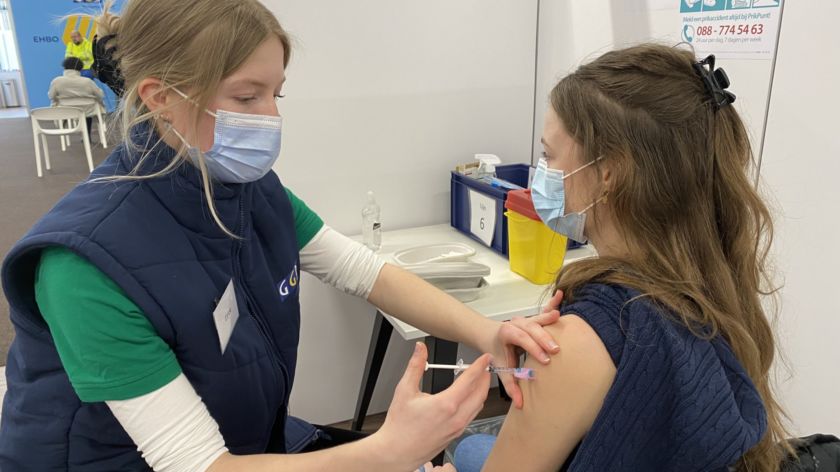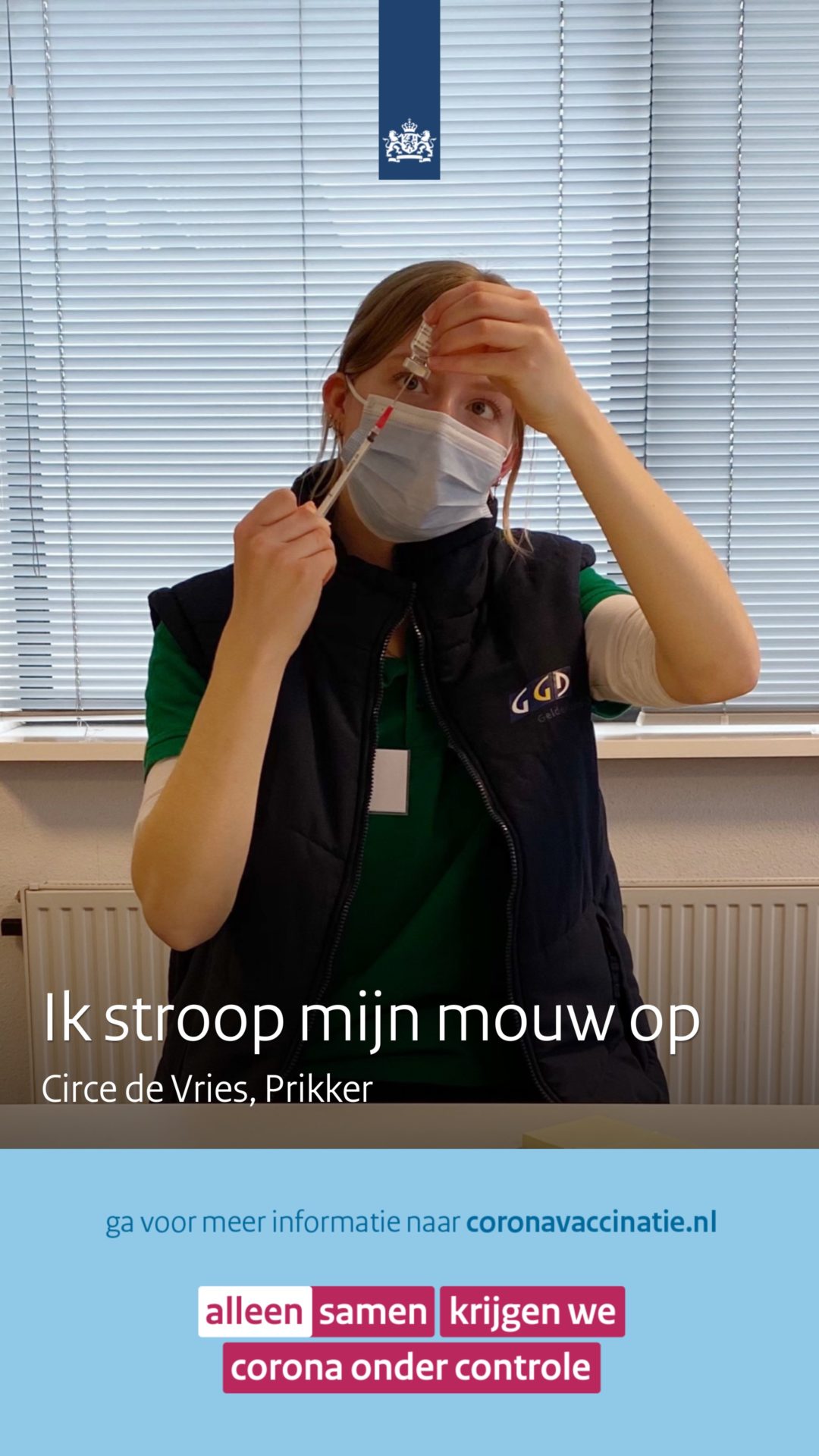For dentistry student Circe administering vaccines is one big practical lesson
-
 De Vries fills a syringe in the ‘selfie corner’. Own photo
De Vries fills a syringe in the ‘selfie corner’. Own photo
For the past few weeks dentistry student Circe de Vries (19) has been vaccinating people against Covid-19 in Wijchen and Tiel. Before that she worked at a Covid-19 test location in Nijmegen. When asked whether she wanted to administer vaccines, she didn’t hesitate. ‘I spent six months at the test location looking at the ‘illness side’ of the pandemic. Now I can contribute to the solution.’
She has two tasks: filling the syringes and administering the vaccines. Employees take turns performing these tasks in 90-minute blocks. ‘You have to really concentrate when filling the syringes,’ explains Circe de Vries. This is particularly true with the Pfizer vaccines, which are administered to elderly people in Wijchen. ‘You get a small vial of liquid, to which you have to add 1.8 ml of sodium chloride. It’s very precise.’ In Tiel, healthcare workers are administered the AstraZeneca vaccine, which is pre-mixed before delivery.
Fainting
The injections themselves don’t require so much concentration. ‘There’s more of a margin there: a muscle is wide and runs along the whole length of the arm. It’s hard to get it wrong,’ explains the student. She was already familiar with the theory behind administering injections from her studies, but this didn’t give her an advantage over her colleagues. ‘In dentistry you inject into a nerve to numb the area; this is completely different.’
‘You’re injecting something into people’s bodies, which can cause a reaction’
New employees follow a course to learn how to position the needle, but some medical knowledge is still required to be allowed to administer vaccines. ‘You’re injecting something into people’s bodies, which can cause a reaction. You need to know how to respond. For example, if someone faints you first have to put the needle away to create a safe situation, and then lay the patient down with their legs raised.’ After people get the vaccine, they’re asked to remain in the waiting room, within reach of first-aid personnel, for 15 minutes, in case they develop an allergic reaction. People who have previously had an allergic reaction to a vaccine are asked to wait for 30 minutes.
Chat
De Vries hasn’t had anybody faint in her chair yet. ‘We’re now vaccinating people aged 80 and up and healthcare workers, two groups that are used to this kind of situation,’ she says. Healthcare workers usually don’t need a lot of explanation and also ask very few questions. ‘Elderly people sometimes have to remain seated a bit longer, for example if they use blood thinners. I then apply pressure to the spot where the needle went in and we have a little chat. People sometimes want to know what will happen to their body after the vaccination.’ The student says no one has yet asked her about conspiracy theories and the possible implantation of microchips into people, although she’s been instructed on how to respond to questions like this during an e-learning course.
Interacting with the ‘patients’ is extremely valuable in light of her studies. ‘I’m happy to have found a part-time job in the medical sector.’ How to talk to people you don’t know and put them at ease: it’s all one big practical lesson, says De Vries. ‘Although I’m one of the few lucky students who’s allowed on Campus four days a week for real practical lessons for my dentistry studies.’
Infection
She will also soon no longer have to worry about getting infected. As an interim healthcare worker she got her first Pfizer injection last week, a vaccine dose that was left over after a day of vaccinating. ‘I was really happy when I ended up at the top of the list for the vaccine. I really wanted to get vaccinated.’ She already has an appointment for her second dose.
It’s unclear exactly how many Radboud University students have worked or are working at GGD Gelderland-Zuid. ‘But since the start of the Covid-19 pandemic, many students have joined the GGD Gelderland-Zuid staff,’ says a spokesperson. ‘They administer tests, carry out source investigation and contact tracing, work at the call centre, and since January also administer vaccines.’




